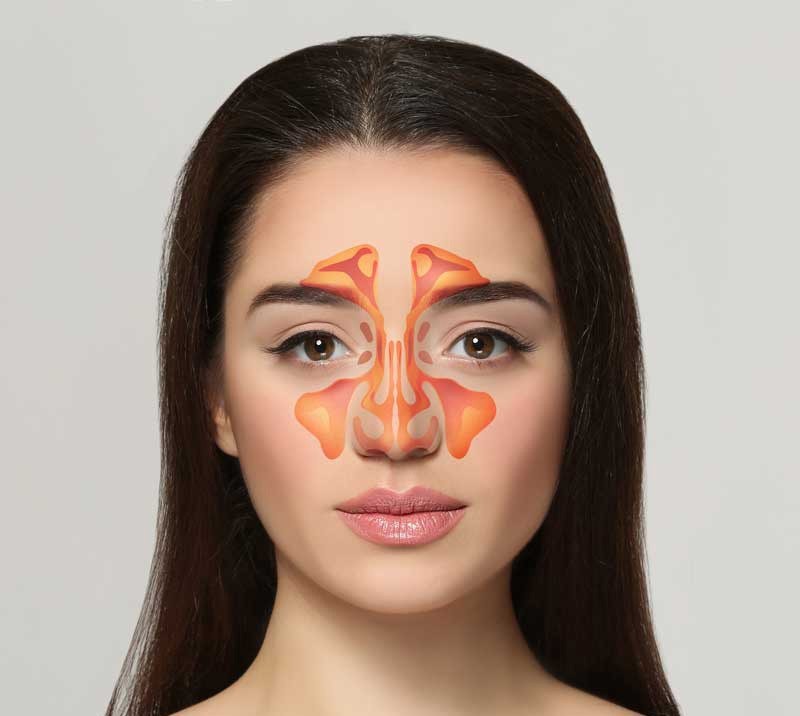No products
What Is Sinusitis?
What is Sinusitis? Nurse's Guide
Sinusitis is a serious health concern. Sinusitis headaches and other symptoms are usually caused by sinus infection (also called sinusitis). Sinus infections cause about 16 million doctor visits and more than $150 billion spent on prescription medicines each year. Those with allergic reactions, asthma, structural blocks in the nose or sinus cavities, or those with low immune systems are at higher risk.
The inflammation of the nasal passages, often resulting in a sore throat, fever, and swollen glands, is one of the main symptoms of a sinus infection. Other symptoms include pain behind the eyes, swelling of the face or extremities, headache, toothache, reduced sense of smell, night sweats, loss of smell, eyelid drooping, stuffy nose, and frequent sneezing. If these symptoms do not clear up on their own, an appointment with a doctor is recommended. Often times, nasal polyps or other growths are the cause of sinus infection.
Sinusitis can affect anyone of any age but is most common in younger people. It is caused by infection or inflammation of the sinus openings, which are usually small openings that are connected to the back of the throat and the nose. When a person's immune system is compromised, these openings become inflamed, which results in infection and chronic sinusitis. When the immune system is deficient, the lining of the sinus cavities thickens, which can result in chronic bacterial or fungal infections.
How Do I Get Better? Many people who suffer from chronic sinusitis think they will get better through old age or a simple cold. That may be true for some people, but the truth is, you don't have to wait for a flare-up to get better. You can cure chronic sinusitis now! There are several natural remedies for sinus infection that you can use on your own from home, without having to pay for expensive doctor visits or prescription drugs.
Sinusitis can be brought on by many different things. You could have a bad cold or the flu, both of which can bring about a loss of sensation in your ear and lead to pain behind the ears. Some people also experience sinusitis as a result of allergies. Sometimes, sinus infections are caused by food intolerance or poor eating habits. Whatever the cause, you can take steps toward recovering from sinusitis by following these easy tips:
What Is Sinusitis? Sinusitis is a condition where mucous membranes in the nasal cavities become inflamed, either because of an infection or allergy. The sinuses drain the fluid that results from the inflammation, so it can naturally go away after a short period of time. But if the drainage lasts longer than is normal, then you probably have chronic sinusitis.
What Is Sinusitis? Chronic sinusitis is usually brought on by a persistent infection in the sinuses, which is caused by allergies or environmental irritants. When mucus drainage from the nasal passages does not clear the infection and stays in the nasal passages too long, it gets trapped in the tissue, causing chronic swelling, pain, and sometimes bleeding of the lining of the sinuses. It can also cause temporary damage to the eyes, cheeks, and roof of the mouth.
What Are Sinusitis Symptoms? Some of the more common sinusitis symptoms include: persistent colds that don't go away, feeling of pain and pressure in your forehead and cheekbones, usually around the eyes or nose, sometimes loss of smell, headaches, irritability, lack of concentration, dizziness, sinus congestion, sometimes trouble swallowing, swelling of the eyelids, stuffy nose, night sweats, thinning of the eyelashes, stuffy nose, post-nasal drip, feeling of intense pressure over the nose, and sometimes bad breath. These are only a few of the sinusitis symptoms, and there are many more. When these things start happening, they should prompt you to see a doctor.


Leave a comment